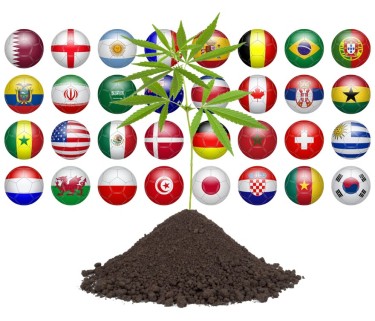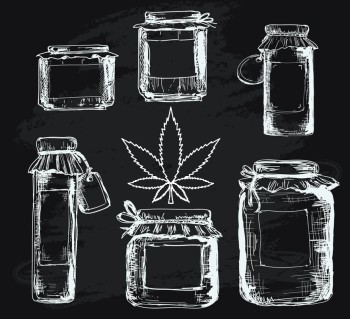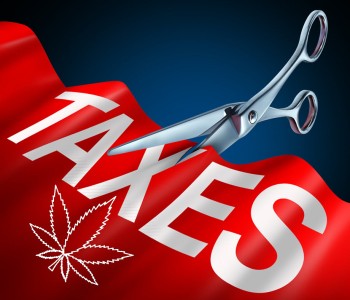
Since its peak, the regulated medical cannabis industry in Canada has declined a bigger rate than most people thought would happen with recreational legalization. This decline began even before the legalization of recreational marijuana in October 2018 to be precise, and has continued as adult-use sales have replaced controlled medical cannabis purchases.
According to experts, the ease of purchasing from adult-use retailers, difficulties for doctors in approving medical cannabis, a lack of tax benefits for medical cannabis consumers and producers, and the fact that THC potency thresholds apply to both medicinal and recreational cannabis products are all contributing factors to the medical market's decline.
Those problems could serve as lessons for other countries and regions that approve medical marijuana first before legalizing it for adult usage.
THE SITUATION IN CANADA
According to data from Statistics Canada, medical cannabis spending in Canada peaked in the fourth quarter of 2017, at 161 million Canadian dollars, nearly a year before recreational marijuana sales started.
The most current statistics indicate that medicinal marijuana sales increased to CA$109 million during the second quarter of 2022 from a low of CA$104 million in the first. According to Brett Zettl, president and CEO of Zyus Life Sciences, a medical marijuana business based in Saskatoon, Saskatchewan, which is getting ready to go public through a reverse takeover, patients are currently just giving up and buying stuff from an adult-use store.
Canada was the first significant economy in the world to federally legalize recreational marijuana use. But established marijuana markets in the US, like Colorado, have shown a similar tendency, with medical markets contracting after recreational legalization.
If Germany implements its proposal to legalize adult use, these tendencies make it uncertain if the country's largest cannabis market in Europe will experience a similar medicinal market drop.
According to Deepak Anand, a top executive of the charitable advocacy group Medical Cannabis Canada and a consultant on cannabis laws for several international governments, some Germans purchase medical marijuana out of their own pockets, and that segment of the market stands to be impacted by the legalization of adult use.
Anand said that the public health system reimburses about 40% of all German medicinal marijuana prescriptions.
"I don't think the pattern that we've seen in legal markets—where, basically, after recreational legalization, we see medicinal sales have declined—will necessarily continue in Germany," Anand added.
THE INCONVENIENCE FACTOR
To obtain dried marijuana, oils, edibles, or topicals through the government's system, Canadians need a prescription from a doctor or nurse practitioner. This allows people to purchase marijuana straight from licensed dealers for mail delivery.
Both growing medical marijuana at home and purchasing it from a certified grower are acceptable.
As of the end of 2021, just 42,000 people were producing medical marijuana for personal use or others, according to Health Canada.
Comparatively, over 257,000 people registered to purchase cannabis from a commercial grower.
Zettl, a veteran participant in Canada's regulated MMJ market, suggests that several causes could account for the market's fall since its 2017 peak. Zettl stated that the Canadian medical cannabis patient group contained both "genuine medicinal users" and some casual users before the legalization of recreational use in October 2018. They would attempt to obtain it legally while continuing to take it recreationally, according to Zettl.
Now, he claimed, purchasing marijuana at an adult-use store is easier than utilizing the legal medical marijuana system.
Zettl also thinks that doctors might be reluctant to waste hours filling out medical marijuana permission paperwork and that medical-certification agencies may audit doctors who approve cannabis for an excessive number of patients.
People simply don't want the inconvenience element, according to Zettl. The hassle aspect is not desired by the doctors.
Following the legalization of cannabis for adult use, new cannabis products, such as edibles, entered the market. However, medical cannabis products are still subject to the same laws as recreational cannabis, including THC limitations on goods like edibles.
Anand said that it would be incorrect to hold recreational and medical marijuana to equal standards, concerning imposing limitations for high THC, for example.
He contends that due to Canada's preoccupation with legalizing marijuana for recreational use, not just have patients been overlooked, but also regulating policy has been disregarded to a significant degree."
The patient is going to the illegal market to be able to acquire their products, as we observed and are still experiencing, he continued.
Another historical obstacle for the medical market was the cost of cannabis, according to Anand. That has improved since recreational use was legalized.
Although it does allow registered patients to deduct medical marijuana costs on their yearly tax returns, Canada does not provide registered medical cannabis users with any special tax treatment.
Patients who purchase medical marijuana pay retail taxes, just like they would at a store selling recreational goods, and growers pay the same excise taxes as those on cannabis for adult use.
Anand stated that it simply doesn't make sense since, in Canada, there is no tax on any other medicinal products.
GAINING GROUND ONCE MORE
To get Canada's medical marijuana business thriving once more, Anand advocated for legislative changes.
It should be done right away, he argued, to permit pharmacists to administer medical cannabis. We should also immediately remove taxes and potency restrictions.
The Canadian cannabis sector is hoping for changes to the federal Cannabis Act, which is presently being reviewed.
One of the key subjects for the review, according to the government, is the effect of regulation and legalization of cannabis on accessibility to marijuana for medical purposes.
According to Zyus' Zettl, the government is utilizing "this recreational-style statute to control and regulate the medical side - and it's coming at a great disservice for the medicinal usage, on both the doctors' side and the patient side.
Zettl stated that Zyus is creating three cannabis drug-product candidates to expand the country's medicinal marijuana industry and anticipates eventually obtaining official Drug Identification Numbers (DINs) from Health Canada.
Because they could be included in insurance companies' formularies for prescription drugs and doctors could recommend them without worrying about being scrutinized by regulators.
Zettl acknowledged the long-term nature of obtaining DINs for herbal cannabis products.
Therefore, medical marijuana must, in the interim, find methods to appeal to those who are really, honestly utilizing it for medical purposes and offer them a reason to continue using it rather than giving up and only purchasing it (from recreational businesses).
BOTTOM LINE
Other countries looking to make recreational cannabis legal at the federal level can take a look at what the move did to the Canadian cannabis market and work on policies and regulations that will be better for the country before legalization takes place.







